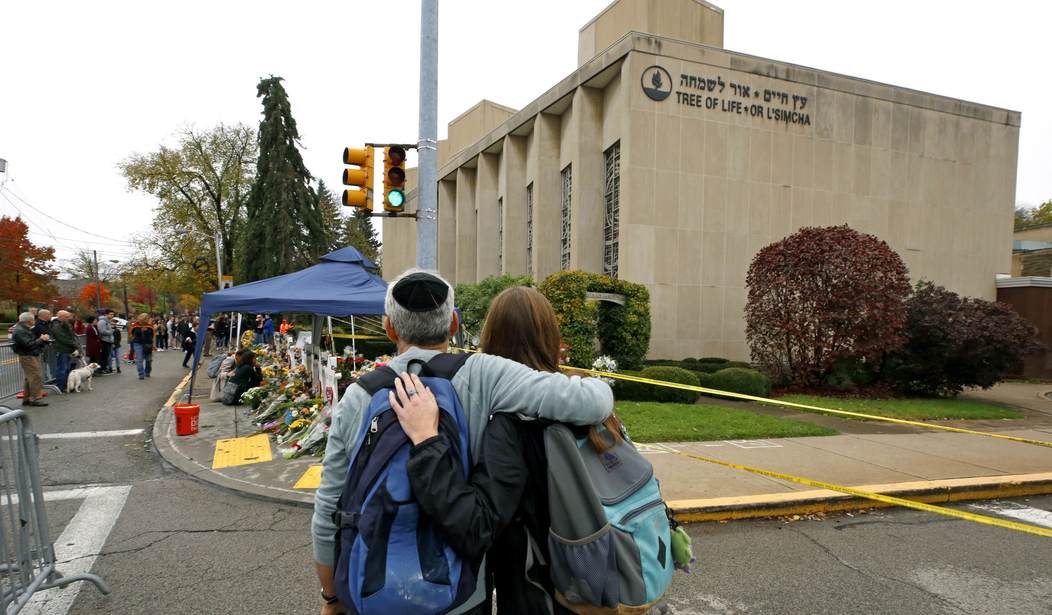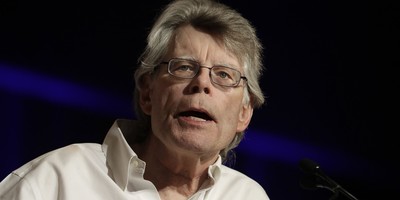PITTSBURGH -- For the first couple of years after the Tree of Life synagogue massacre that claimed the lives of 11 members of the Jewish community, Joe Mistick could not bring himself to drive past the synagogue despite its close proximity to his Squirrel Hill home.
"For years, I would do anything, everything, to not drive past it, often going blocks or even a mile out of my way," said Mistick, a Duquesne University law professor and former deputy mayor of the city of Pittsburgh.
Mistick, who is not Jewish, said the memories of what happened on Oct. 27, 2018, when 11 were killed and six were wounded in an attack on dozens of congregants attending a Shabbat morning service, remained too painful for him to be reminded of.
"It was a damned reminder of the high cost of hatred," Mistick said.
It was only after having a conversation with a Jewish friend of his not that long ago that Mistick changed his perspective. "He told me he did the exact opposite, that he actually goes out of his way to drive past the synagogue because it was important for him to be reminded of the horror that happened and to make sure we do everything we can as a community to never let it happen again," Mistick explained.
He now does so every day.
A little over five years after the deadliest attack on any Jewish community in the United States, barefaced antisemitism has emerged from the darkness with a blatancy and boldness that is breathtaking to behold.
Mistick said that in the aftermath of the shooting, a Christian church opened its doors for Jewish congregants to pray, and Muslim communities raised funds for the victims' funerals. At a vigil the day after the attack, Wasi Mohamed, the former executive director of the Islamic Center of Pittsburgh, said, "These are our brothers and sisters. ... These are our family."
And seemingly everywhere you went, the Pittsburgh Stronger Than Hate logo, which cleverly had the Steelers' distinctive mineral elements as part of the design, was on T-shirts, kippahs, lawn signs, hoodies and more.
Recommended
Recently, however, Pittsburgh became the site not of strength and unity but of hatred and division. A group of over 300 far-left activists established a Gaza solidarity encampment on the private property of the University of Pittsburgh, and the community has not been the same since.
The activists, some involved in local Democratic politics and a few actual University of Pittsburgh students, erected a barricade and set up a fence around an encampment filled with small and large tents. The encampment has also included defacing the Cathedral of Learning, blocking the entrances and defacing the Frick Fine Arts Building with antisemitic graffiti.
Both the city of Pittsburgh and Allegheny County leadership were noticeably mute in the first 30 hours, with both Mayor Ed Gainey and Allegheny County Chief Executive Sara Innamorato, the latter having her early political success as a member of the Pittsburgh Democratic Socialists, saying absolutely nothing for over a day.
When Gainey finally did offer a statement, it was through the Pittsburgh Public Safety spokesperson who wrote that the "encampment/sit-in at the University of Pittsburgh is strictly taking place on private campus property."
As one elected Democrat who asked not to be identified said to me in a fit of frustration, "If the KKK had been doing this at Pitt, private property or not private property, I can guarantee you Gainey would be there in a heartbeat."
The protesters said they were reclaiming the campus "in the name of Palestine from the river to the sea" and listed a series of demands that included the university disclosing all their investments and the immediate termination of Pitt's Hillel chapter.
Pennsylvania state Rep. Dan Frankel, a Democrat, said in response to all of it, notably the "river to the sea" reference and the termination of Hillel, that what they were proposing was both chilling and dangerous.
"This is not a close call. It is antisemitism, and it is dangerous," Frankel said.
In response, members of his own party took jabs at him on X.
They did the same thing to Pittsburgh Controller Rachael Heisler, who, in response to a video of protesters chanting, "There is only one solution, intifada revolution," posted on X that while she respected the right to protest, "calling for an intifada is calling for the murder of Jews. This is antisemitic hate speech and must not be tolerated."
Despite many members of her own party dragging her for her post, Heisler stood firm. So did Frankel. So did Eugene DePasquale, a Democrat, Pitt adjunct professor, and the former state auditor general now running for the state attorney general's office, who posted on X that calling for the end of Jewish student groups at Pitt is an unacceptable attempt to isolate Jewish students.
In an interview with the Washington Examiner, DePasquale, who lives in Squirrel Hill, said we have lost that connectivity and humanity that we shared when everyone across all political stripes, religions and races came together five years ago.
"The swiftness of it when you think of it is head-turning," DePasquale said. He said no matter what happens on social media, he will always stand up for what is right when it comes to any religious group.
"I am all for standing up for the First Amendment," he said, adding that calling for the end of Jewish groups or intifada is beyond a bridge too far.
Pennsylvania state Rep. Abigail Salisbury, a Democrat, Jew and proud progressive, who Gainey, Innamorato and Rep. Summer Lee (D-Pa.) recently unsuccessfully tried to oust in a Democratic primary, said on Facebook, "It seems that many people expect Jews to sit quietly with our hands folded and allow others to tell us what is antisemitic. We won't."
Salisbury's post was the perfect example of the split between Democrats all over social media. For every Frankel, Heisler, Salisbury and DePasquale, there were the posts or retweets by Lee, county Councilwoman Bethany Hallam and city Councilwoman Barb Warwick that cut to the heart of Salisbury's post.
Warwick, who tried but failed to introduce a Pittsburgh City Council ceasefire resolution and represents Squirrel Hill, issued a statement that said in part that the words "intifada" and "from the river to the sea" hold different meanings to different groups.
Lee called for a meeting to address "the root cause of the outrage."
Hallam retweeted a post by the Pittsburgh chapter of the Democrat Socialists of America -- where she, Innamorato and Lee all got their start -- that said the encampment would not be moved until Pitt discloses and divests.
"Once people leave the camp, the cops will not let them back ... so they are staying. Supporters outside the barricades are crucial to keeping this movement going. We need supplies, chants and eyes on cops," the post continued.
Gainey said during a press conference on June 4 that he spent three hours with the protesters and was able to negotiate a decampment. He provided no details on the substance of those conversations, and the university has denied they were involved with the Gainey negotiations.
There was a clear, defining rift between the hardline far-left wing of the party and the bread-and-butter progressives who want to pursue liberal policies in government in this conflict.
Many supporters of the movement, along with Lee, Hallam and Warwick, openly questioned if they would even vote in November's elections for President Joe Biden. This made several local Democratic strategists wonder what the impact might be if they followed through.
Many elected Democrats have changed since the days following the Tree of Life massacre. At that time, all four top Democrats in the region -- Lt. Gov. John Fetterman, Rep. Mike Doyle (D-Pa.), Mayor Bill Peduto and Allegheny County Chief Executive Rich Fitzgerald -- stood arm in arm in support of the Jewish community.
All four are now gone from office with the exception of Fetterman, who is now the junior U.S. senator from Pennsylvania and an unabashed supporter of Israel, something that, despite infuriating the far left of his party, has not touched his resolve.
They all worked hard to bring the community, region and even the world together to give comfort to their Jewish neighbors whose very lives and stability were at stake.
At the end of the occupation, Cory Roma, a Young Democrats of Allegheny County member who is running for vice president of the organization, posted on X that he "was here when this camp started and I'm here when it ended. And I'm proud to [have] been a visible & vocal participant."
The YDAC is an affiliate of the Democratic Party for young Democrats under the age of 35. The national Young Democrats of America has been the youth arm of the Democratic Party since its 1932 founding.
Roma's view was very different than that of DePasquale, Heisman and Salisbury.
History shows us that when parties change and evolve, there is an impact, and the frustrated or unheard sometimes opt to stay home to voice their anger -- it is a form of populism that has the potency to impact an election few consider.
Salena Zito is a CNN political analyst, and a staff reporter and columnist for the Washington Examiner. She reaches the Everyman and Everywoman through shoe-leather journalism, traveling from Main Street to the beltway and all places in between.

























Join the conversation as a VIP Member